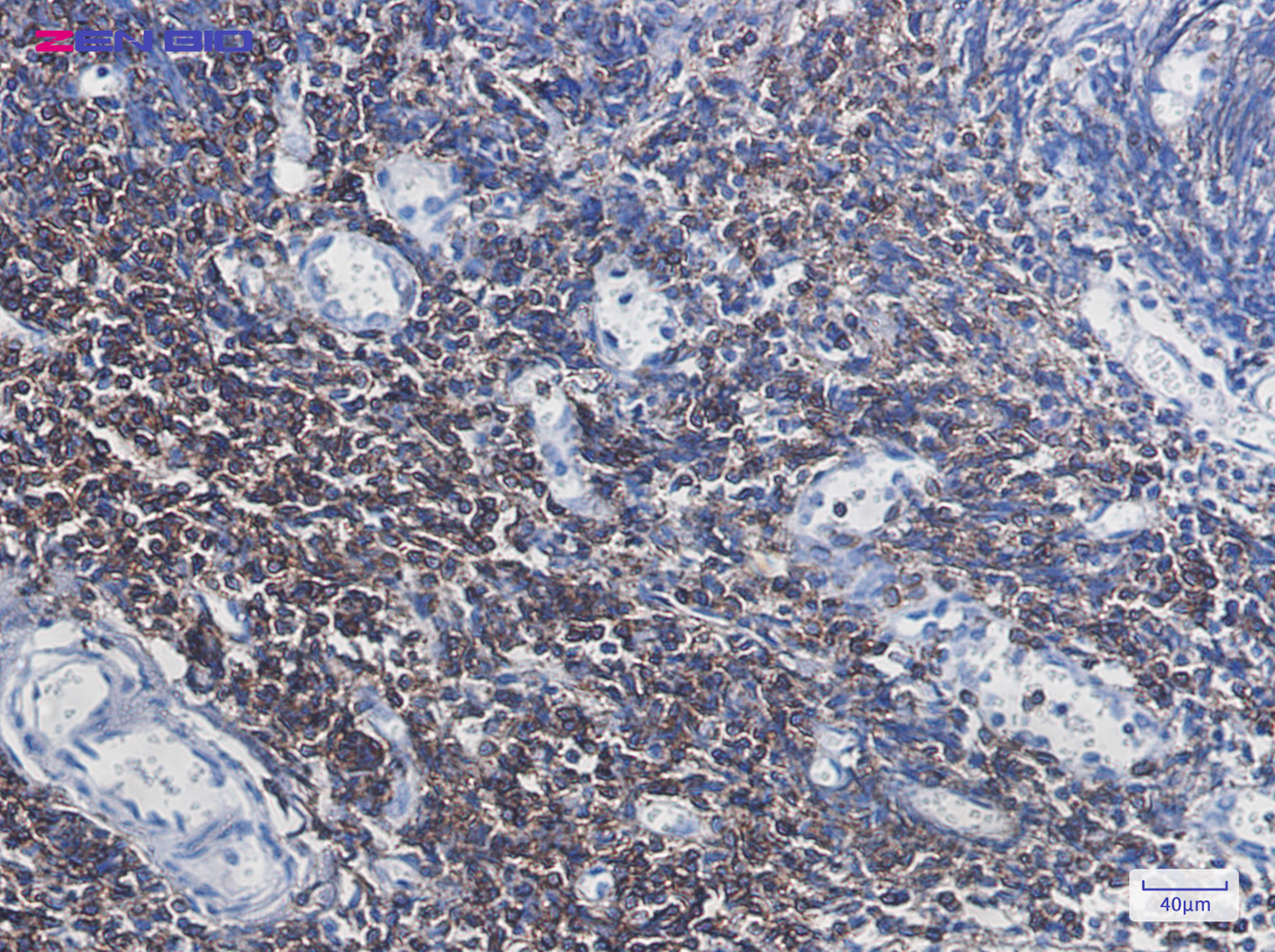-
Product Name
Anti-CD3G Rabbit antibody
- Documents
-
Description
CD3G Rabbit polyclonal antibody
-
Tested applications
WB, IHC-P, ICC/IF, FC, IP
-
Species reactivity
Human, Mouse
-
Alternative names
T3G; IMD17; CD3-GAMMA antibody
-
Isotype
Rabbit IgG
-
Preparation
Antigen: A synthetic peptide of human CD3G
-
Clonality
Polyclonal
-
Formulation
Supplied in 50nM Tris-Glycine(pH 7.4), 0.15M Nacl, 40%Glycerol, 0.01% sodium azide and 0.05% BSA.
-
Storage instructions
Store at -20°C. Stable for 12 months from date of receipt.
-
Applications
WB: 1/2000-1/10000
IHC: 1/50-1/200
ICC/IF: 1/50-1/200
FC: 1/20
IP: 1/20-1/50
-
Validations

Immunohistochemistry of CD3G in paraffin-embedded Human tonsil using CD3G Rabbit pAb at dilution 1/50

Western blot detection of CD3G in Jurkat cell lysates using CD3G Rabbit pAb(1:1000 diluted).Predicted band size:21KDa.Observed band size:21KDa.
-
Background
Swiss-Prot Acc.P09693.Part of the TCR-CD3 complex present on T-lymphocyte cell surface that plays an essential role in adaptive immune response. When antigen presenting cells (APCs) activate T-cell receptor (TCR), TCR-mediated signals are transmitted across the cell membrane by the CD3 chains CD3D, CD3E, CD3G and CD3Z. All CD3 chains contain immunoreceptor tyrosine-based activation motifs (ITAMs) in their cytoplasmic domain. Upon TCR engagement, these motifs become phosphorylated by Src family protein tyrosine kinases LCK and FYN, resulting in the activation of downstream signaling pathways (PubMed:2470098). In addition to this role of signal transduction in T-cell activation, CD3G plays an essential role in the dynamic regulation of TCR expression at the cell surface (PubMed:8187769). Indeed, constitutive TCR cycling is dependent on the di-leucine-based (diL) receptor-sorting motif present in CD3G.
Related Products / Services
Please note: All products are "FOR RESEARCH USE ONLY AND ARE NOT INTENDED FOR DIAGNOSTIC OR THERAPEUTIC USE"
